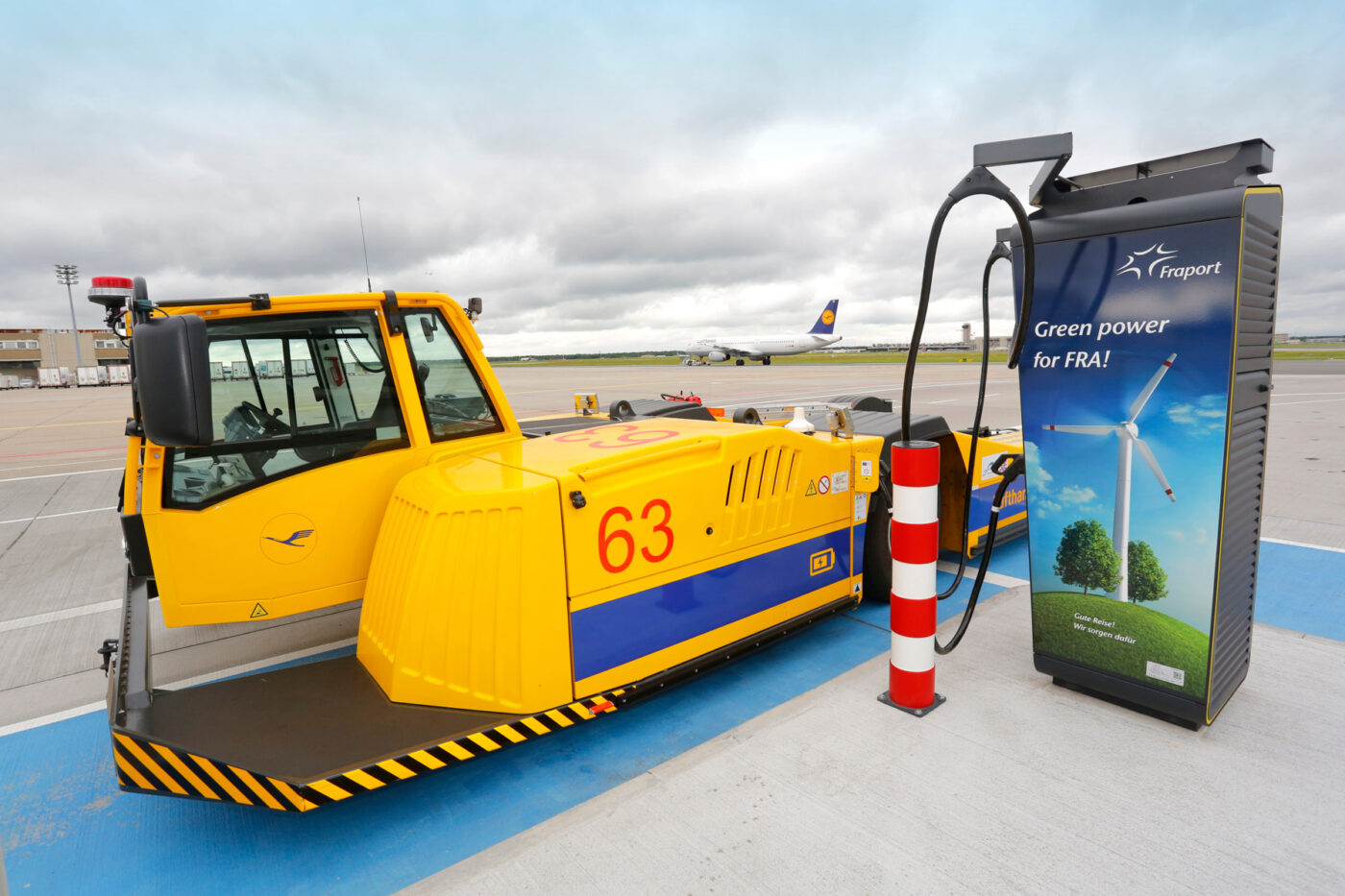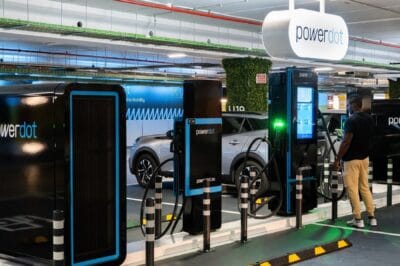Pilot project on bidirectional charging takes off at Frankfurt Airport
Over the next four years, a good five million euros will flow to Frankfurt Airport from the BMWK’s “Elektro-Mobil” funding programme. Fraport itself is investing a further 4.1 million euros in the project together with cooperation partners. The project will run for a total of four years, starting with a twelve-month technological planning phase. In the following three years, almost 90 bidirectional charging points are to be created on the airport site.
Fraport AG’s e-fleet currently comprises around 650 vehicles. By 2026, the airport operator will put another 600 cars, vans, buses and specific handling vehicles with e-drives into service. Their battery capacity is also to be used for other purposes during idle times.
All in all, the batteries in this fleet will use bidirectional charging technology to create a virtual large-scale storage system that can alternately absorb and release large amounts of electricity at any time. The idea is to use the sophisticated software to control this according to demand and supply without interfering with daily operations at the airport.
In practice, Fraport itself points out some hurdles. For example, there are few vehicles in the car and bus sector that support bidirectional charging ex works. The situation is similar for vehicles such as aircraft tow tractors. “At present, the technology is not yet widely usable, interfaces are not yet standardised. This is especially true for numerous special vehicles used in aircraft handling,” the statement says.
The airport operator is supported in the further development of the software by cooperation partner Stromnetz Hamburg. Darmstadt University of Applied Sciences is providing scientific support for the economic and technical aspects. The BMWK has transferred the project sponsorship to the German Aerospace Centre.
“Frankfurt Airport is providing an ideal, self-contained field test system for implementing a bidirectional charging infrastructure,” says Michael Kuschel, Head of Energy and Networks at Fraport AG. “Fraport is playing all of the main roles in it: we are both the network operator and its primary consumer. The charging points are part of our own infrastructure, and we are also providing the required software. This unique constellation enables us to model the required test environment despite the fact that not all of the technical and regulatory definitions have been fully formulated yet.” Corresponding transfer concepts as well as business models for the public space are components of the project.
According to Kuschel, the company is aiming to use bidirectional charging across the board, for example also in car parks. “An airport operates critical infrastructure, which makes it essential to consistently ensure a stable network and dependable power supply. This is a major challenge, but once it has been successfully mastered the system will crucially strengthen the airport,” predicts Kuschel. “It will also provide attractive economic benefits, since we expect that this migration will also allow us to reduce our expenditures for electric power by making efficient use of available resources.”





0 Comments